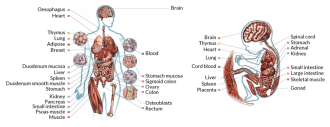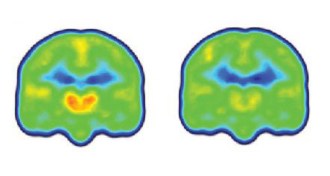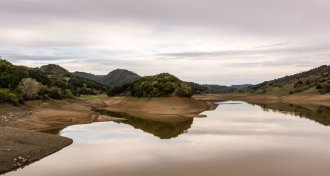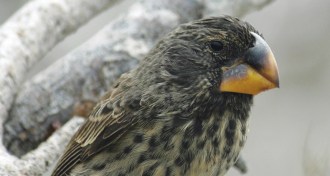News
-
 Genetics
GeneticsCatalog of DNA modifications produces surprises
A map of chemical modifications of DNA and its associated proteins shows how the genome changes during development and disease.
-
 Genetics
GeneticsFor penguins, it’s a matter of no taste
Penguins lack taste genes for bitter, sweet and umami.
-
 Materials Science
Materials ScienceOld chemistry gives jolt to modern batteries
Chemical reactions discovered in the 19th century improve the performance of futuristic batteries.
-
 Neuroscience
NeuroscienceChronic pain treatments may get boost from high-tech imaging
Advanced imaging may reveal how well chronic pain treatments work.
-
 Planetary Science
Planetary ScienceEnceladus ocean may resemble Antarctic lake
The pH of a subsurface sea on a moon of Saturn resembles an ice-covered lake in Antarctica where microbial mats thrive.
-
 Oceans
OceansOn East Coast, sea levels lean southward
On North America’s East Coast, sea levels tilt slightly downward to the north, new research finds.
-
 Paleontology
PaleontologyEarliest tree-dweller, burrower join mammal tree of life
Fossils show mammal ancestors did a lot more than cower in dinosaurs’ shadows.
By Susan Milius -
 Climate
ClimateWorst drought in a millennium predicted for central and southwest U.S.
Comparing reconstructions of past drought conditions with models of future dryness shows that the Central Plains and Southwest U.S. will become the driest in a millennium.
-
 Animals
AnimalsWhen you’re happy and you show it, dogs know it
A new test using pictures of halves of human faces challenges dogs’ abilities to read people’s emotions.
By Susan Milius -
 Health & Medicine
Health & MedicineU.S. measles tally for 2015 now at 121 cases
The 2014–2015 measles outbreak in the United States has now reached people in 17 states and the District of Columbia.
By Nathan Seppa -
 Life
LifeThe genetic evolution of Darwin’s finches
A genetic analysis divides Darwin’s finches into more species and uncovers a gene involved in determining beak shape.
-
 Climate
ClimateArtificial fixes for climate change nixed — for now
Experts says schemes to manually adjust the world’s climate are not ready for use, but should be studied just in case.
By Beth Mole